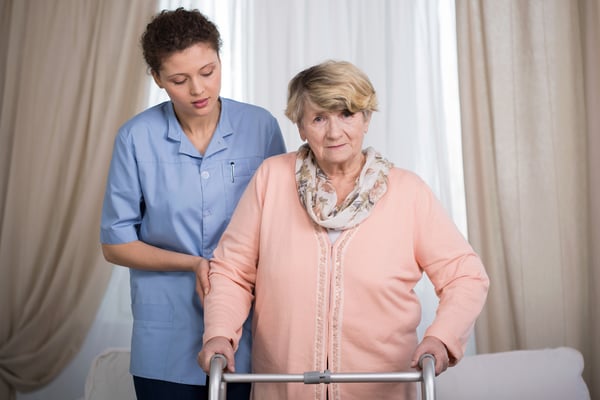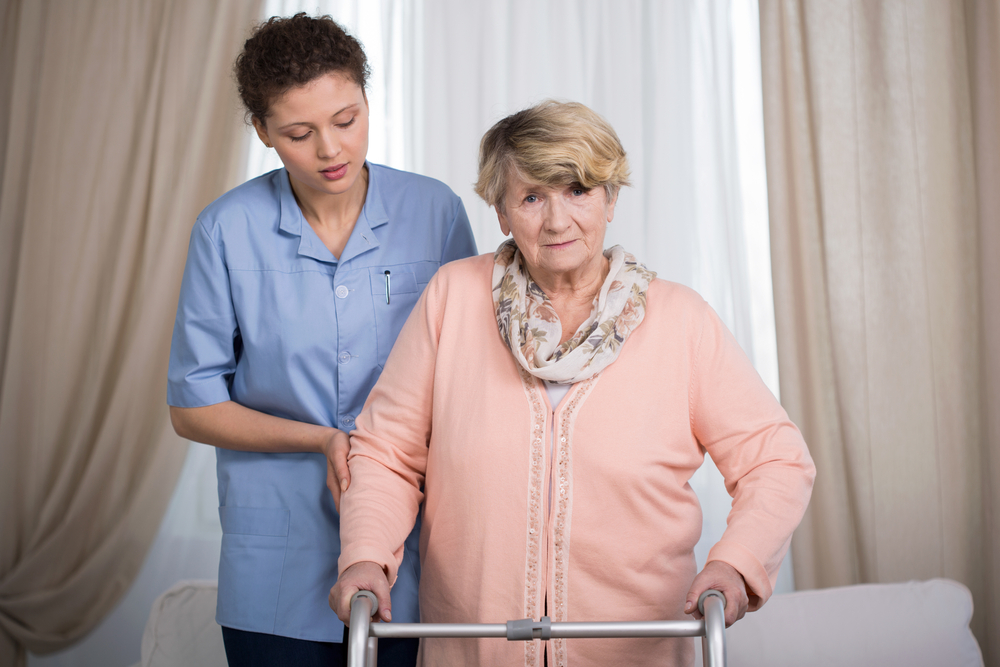Parkinson’s disease normally is diagnosed in people that are in their 60’s. However, because it develops gradually, most people have many years of productive living after being diagnosed.

Thinking about early-stage Parkinson’s, there are some very common activities that help keep people more active and potentially reduce the impact of the disease. The following are some tips from the National Parkinson Foundation for walking, standing, and other day-to-day activities:
Balance
- If you have a tendency to fall backward or feel lightheaded, move slowly when changing positions.
- When turning around, don't pivot your body. Walk forward and make a wide U-turn to avoid sharp turns that could cause you to lose your balance.
- When arising from bed, sit on the side of the bed for 15 seconds before standing. Stand in place with support for an additional 15 seconds before walking. This can prevent dangerous falls.
- For balance, try using a single-point cane with a large rubber tip.
- A decrease in automatic reflexes complicates trying to do two things at once. Automatic Reflexes work less efficiently if competing sensory stimuli take the patient's attention away from a motor function. For instance, it may be difficult to walk and look away at something or attend to a conversation at the same time. One learns to minimize distractions for maximal gait and balance control.
Standing
- If you have to stand for an extended period, keep your feet slightly apart for better balance.
- If getting out of a chair is difficult, place your feet directly under your knees and stand up firmly to overcome the pull of gravity. Rather than bearing excessive weight on the hands and arms to stand erect, use the large thigh muscles to propel the body upward. Practicing this maneuver strengthens the quadriceps muscle and helps maintain independent ambulation.
Walking
- Avoid shoes with rubber or crepe soles. These stick to the floor and may cause you to trip.
- Consciously lift your feet when you walk. This will help you to keep from shuffling or falling due to foot drag.
- Don't carry objects in both hands when you walk! This can cause you to lose your balance.
- Swing both arms freely when walking; this may require a deliberate effort, since the automatic nature of many movements is diminished in Parkinson's. Gently swinging the arms helps maintain balance and lessens fatigue.
Medications and Treatments
The medications and treatments for Parkinson’s are vast and dependent on the person’s individual medical condition. Some may focus on tremors while others may focus on drooling, fatigue, or hallucinations. The list and possible combinations grow daily as new treatments come on the market. Two great places to stay abreast of the changes are the Michael J Fox Foundation and the Parkinson’s Foundation. One very interesting fact pointed out on the Parkinson’s Foundation site is “research shows people with Parkinson’s who seek skilled care are at a lower risk of complications and have better quality of life.” Actively working with your medical team and being proactive in your care will make a huge difference in your outcome.
If medications and non-invasive approaches don’t work there may be a surgical approach. In deep brain stimulation (DBS), surgeons implant electrodes into a specific part of your brain. The electrodes are connected to a generator implanted in your chest near your collarbone that sends electrical pulses to your brain and may reduce your Parkinson's disease symptoms.
Coping and Support
Living with any chronic illness can be difficult, and it's normal to feel angry, depressed, or discouraged at times. Parkinson's disease, in particular, can be profoundly frustrating, as walking, talking, and even eating become more difficult and time-consuming.
Depression is common in people with Parkinson's disease. Antidepressant medications can help ease the symptoms of depression, so talk with your doctor if you're feeling persistently sad or hopeless. Getting help from a qualified psychologist can also help with depression and reduce the long term need for the medication.
Although friends and family can be your best allies, the understanding of people who know what you're going through can be especially helpful. Support groups aren't for everyone. However, for many people with Parkinson's disease and their families, a support group can be a good resource for practical information about Parkinson's disease. Groups offer a place for you to find people who are going through similar situations and can support you.
There are a number of opportunities to get involved in groups in Minnesota including
You and your family may also benefit from talking to a mental health professional, such as a psychologist or social worker trained in working with people who have chronic conditions.
Continue to check out our blogs and ebook as we continue to develop resources to help seniors and their families cope with Parkinson’s.
For additional information and resources on Parkinson's disease and other senior-related care, check out our website!





